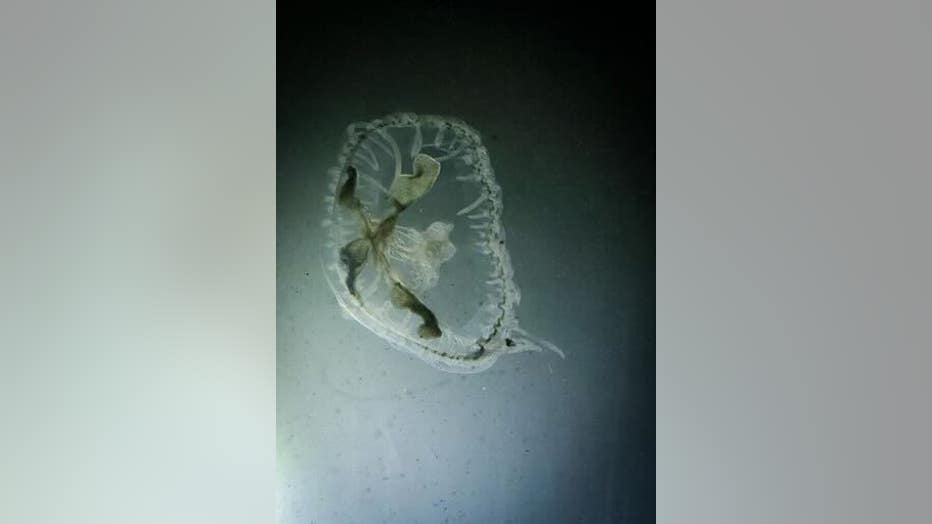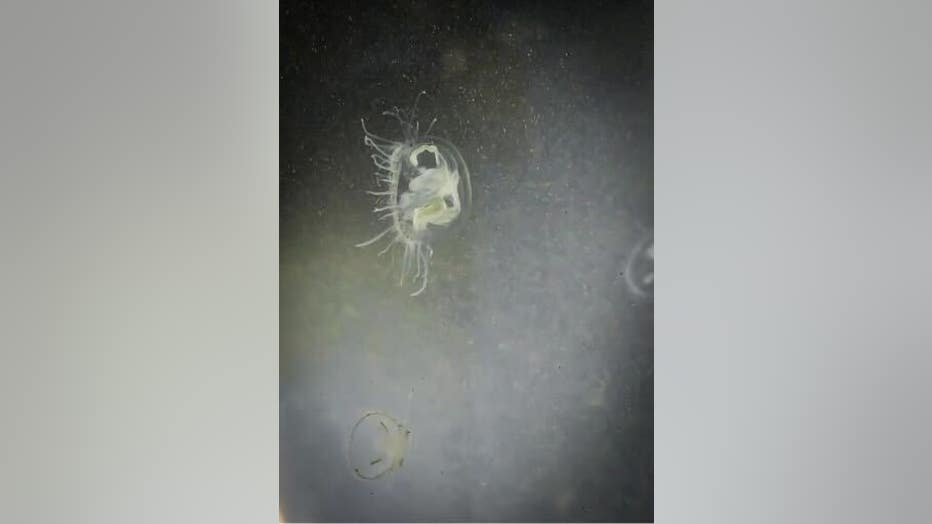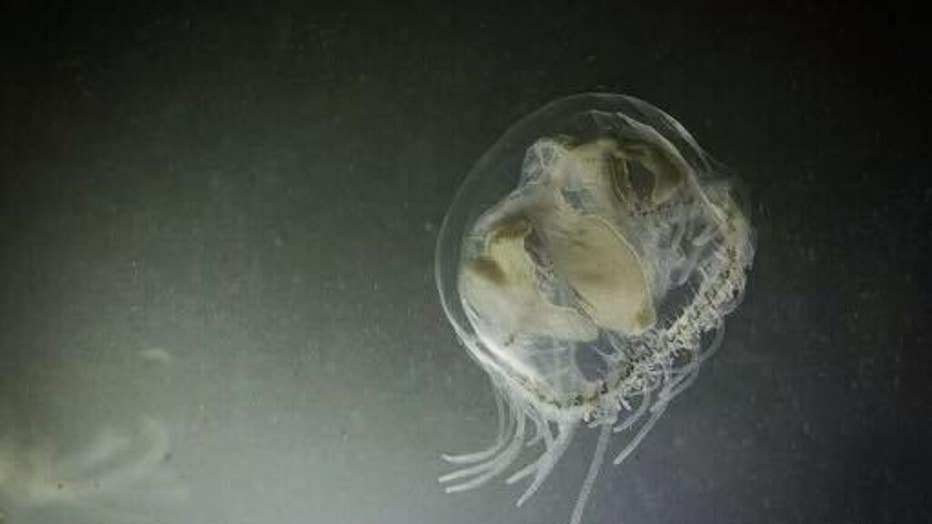Jellyfish discovered in Island Lake Recreation Area pond near Brighton
Photo Credit: Hollyn Johnson
BRIGHTON, Mich. (FOX 2) - Despite being some of the sea's most exotic creatures, jellyfish have become an increasingly common sight in the Great Lakes.
While it might feel like the only place someone in Michigan could see the alien-like organisms is at an aquarium, jellyfish now frequent local inland lakes. FOX 2 Photo Journalist Coulter Mitchell found some floating on the surface of Spring Mill Pond, near Brighton.
"They're about every 10 feet or so on the bottom of the pond," he said after snorkeling. "They look so delicate."
After collecting one in the water, Mitchell put the jellyfish in his hand. "You almost can't even feel them, they're like the same consistency as the water they're in."

Photo Credit: Hollyn Johnson
Jellyfish were first discovered in the Great Lakes in 1933 when observations were reported in Michigan and Ohio. Over the past 90 years, the invasive species has spread to eight states and established in dozens of water bodies around the basin.
Unlike their saltwater-favoring cousins, the species that Mitchell found is likely a freshwater jellyfish that's native to the Yangtze River in China. They're sometimes called "peach blossom fish."
MORE: Michigan's best drives for seeing fall colors
"They're pretty ubiquitous throughout the lower peninsula. They've also been found in some sites in the UP," said Todd Wills, the Lake Huron-Lake Erie Area Research Manager for the Michigan Department of Natural Resources.

Photo Credit: Hollyn Johnson
Wills gets calls about jellyfish sightings when they appear in Lake St. Clair, which happen following a "bloom" event where local jellyfish populations experience substantial growth. Researchers aren't sure what spurs these events - one of several unknowns that surround the jellyfish that live in the Great Lakes.
How they were introduced to the Great Lakes and the impact they have on the local ecology are also questions that remain unanswered.
The organisms do share similarities with other invasive species that now call the Great Lakes home. The habitats in Michigan are slow moving and shallow, perfect for jellyfish. And if the water temperature gets too cold, they can change their form to protect from the freezing conditions.
RELATED: Jellyfish swims into Texas man's flooded yard after hurricane
There are also very few natural predators that feed on jellyfish in Michigan, which is why even in lakes with large fish populations they can thrive.

Photo Credit: Hollyn Johnson

